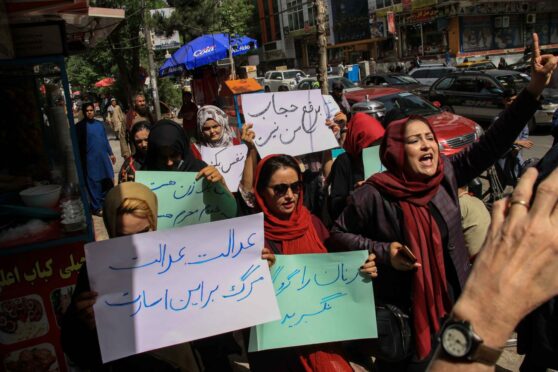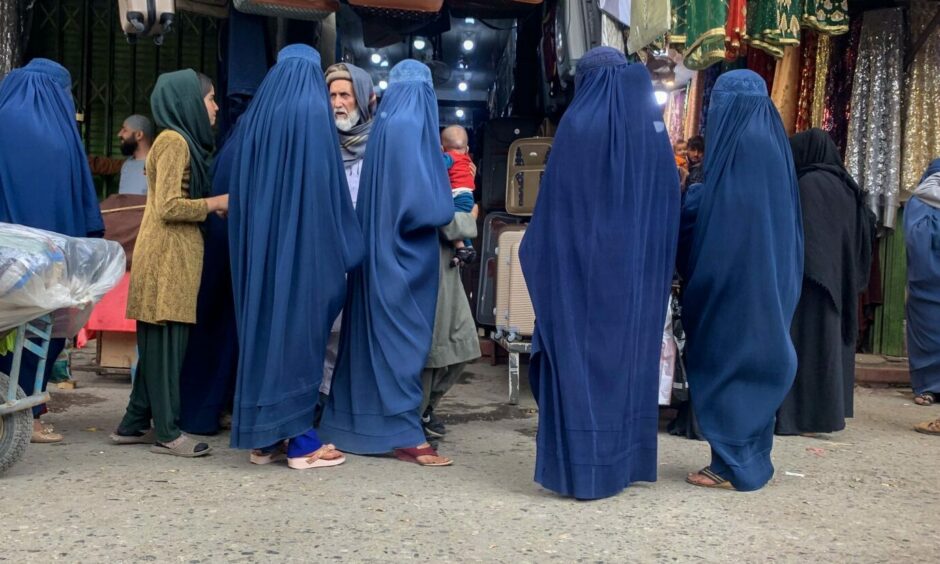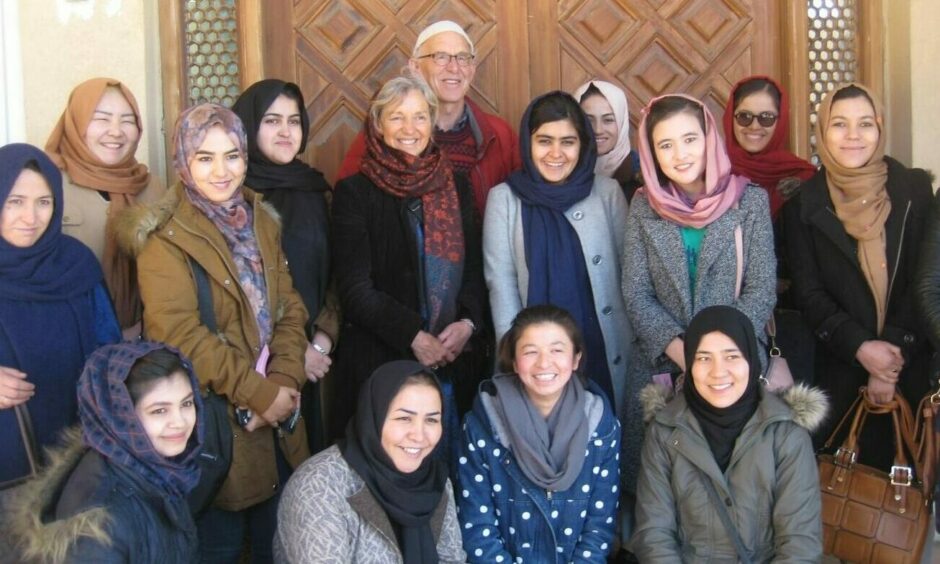A woman trying to flee to Scotland from Afghanistan says dying would be better than her current life of “slavery” under the Taliban.
She has described her despair at having her freedom taken away and her dream of becoming a doctor shattered.
But she is clinging to hope that efforts to bring her and other female students to Scotland will succeed despite currently being caught up in red tape.
The Linda Norgrove Foundation (LNF) has been trying for two years to bring 20 female students to study at Scottish medical schools.
Appeal to help end Afghanistan log jam
The Lewis-based foundation provides scholarships for women studying medicine in Afghanistan.
But after taking control of the country, the Taliban stopped them going to university, with some just weeks from graduating.
Scotland’s five medical schools have offered to accommodate the students to complete their studies.
But, despite discussions with both the UK and Scottish Governments, the LNF has reached an impasse.
It is now asking supporters to write to their MPs and MSPs to help find a way through the bureaucratic log jam.
In March, the Press and Journal spoke to four of the students about their desperate situation.
Now, Muzhda, 23, who was in her final year of studies, has made a new plea for help.
“Before the Taliban, all women had rights like any other human being”, she said.
“People treated us with respect and we had a special place in society. We had freedom and were able to get an education and work alongside men in different fields.
“We were like birds that could fly anywhere we wanted. Unfortunately, the Taliban cut our wings and put us inside a very tight, dark cage.”
Muzhda says everyday life for a women in Afghanistan is challenging.
“Women face significant discrimination and restriction in all areas. We only breathe and (do not have a) life.
“I even (think) dying would be better than (this) aimless and slavery life.”
Coming to Scotland would be ‘life-changing’
She says she became determined to study medicine after her aunt took ill but was not allowed to be seen by a male doctor.
“She died due to a lack of a female doctor. It was the day that made me stronger in my decision to be a doctor.”
Being able to study in Scotland would be like being “reborn”, she said.
“It would mean that I can break free from the oppressive environment of my home country and experience a world where I am valued and respected for my talents and abilities.
“It would mean that I can make a difference in the lives of others by using my skills to heal and save lives.
“Completing my medical studies in Scotland would be a life-changing experience for a girl from Afghanistan, giving her hope and a brighter future. It means everything to me.”
Muzdha is grateful for the support of the LNF and says her hopes lie with the foundation.
“I also politely urge the UK government to assist us and never forget us.”
John and Lorna Norgrove, who run the foundation, have also received new messages from the women, some of whom are contemplating suicide.
One wrote: “I can’t live with broken dreams under this regime, it’s getting harder than before.
“They will never open universities and schools so girls can educate. Therefore, please make the process of getting us out of Afghanistan by providing scholarships faster since there’s no hope from them at all.
“Once again, please DO NOT forget us. We need your help, I need your help.”
Another said she can neither study nor work and every day ends with “crying and hopelessness.”
Afghan students fear for their lives
John Norgrove said the foundation was initially told the relevant pathway, the Afghan Citizens Resettlement Scheme (ACRS), would open in January, then August.
“It’s now being suggested it won’t open any time soon.
“Our students have gone from being trainee doctors to facing a closed existence, consigned to cooking, cleaning and looking after children.
“They aren’t allowed to leave the house without a male chaperone, some fear for their lives and others are likely to be married off against their will.
“They are in utter despair and desperately need our help.”
The foundation says the UK Government suggested the women could be brought to Scotland under student visas.
However, they would face paying overseas student fees of £50,000 each per year.
That would mean a total cost of £1 million, not including living costs, beyond the LNF’s reach.
The UK Government also suggested the Scottish Government could waive the fees, as happened with the Ukranian refugees.
But the Scottish Government says current UK legislation does not allow this and refugee status is needed to make it possible.
The students with the highest grades, the best English and closest to completing their degrees were selected to come to Scotland.
They would be helped to find scholarships and apply for student loans to fund their studies and accommodation.
The Scottish Government says it is committed to working with UK counterparts to find a solution.
The education secretary Jenny Gilruth has met the LNF and has also written to the Home Secretary seeking clarity on action to give the students the appropriate status.
Hoping a solution can be found
A spokesman said: “A solution will allow us to support these women with free tuition and cost of living support.
“We are disappointed that thus far this status has not been provided, however we are sure that a pragmatic solution can be found by the Home Office.
“We reiterate our call on the Home Secretary to ensure this can be resolved for the benefit of these outstanding women.”
A Home Office spokesperson said: “The UK has made an ambitious and generous commitment to help at-risk people in Afghanistan and, so far, we have brought around 24,600 vulnerable people to safety, including thousands of people eligible for our Afghan resettlement schemes.”
He said the resettlement of Afghans remains a top priority and the government continues to work with partners and countries neighbouring Afghanistan on resettlement issues, and to support safe passage for eligible people.
LNF was set up in memory of Linda Norgrove, who was kidnapped while working as an aid worker in Afghanistan.
She died during a failed rescue attempt in 2010.
It has since raised more than £3 million, latterly used for emergency aid as the country’s economy collapses.




Conversation